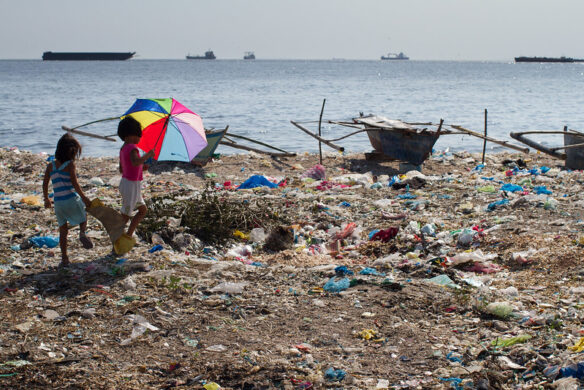
Sand dunes, northern coast, Morocco. Photo source: © SAF
Taxes on natural resources reduce use of raw materials
By The European Commission, Science For Environment Policy
A policy that taxes virgin natural resources (resources that are used for the first time) can be a way of conserving limited resources. This type of tax can also reduce environmental damage, by encouraging the use of less harmful materials or recycled materials that serve the same purpose. This avoids the waste and emissions associated with extraction of raw materials and with the processing of products made from the natural resources.
Although taxes are not always the best way to reduce the extraction of raw materials, or to reduce environmental damage, they can be a second-best option for example, where emissions are difficult to monitor. The first-best option (but not always feasible) would be to address the problem directly rather than indirectly. In addition, tax systems are often less costly to administer than some other environmental monitoring programmes. The study examined the impact of taxes on natural/raw materials, such as gravel, sand and stone aggregate, in three European countries: Sweden, Denmark and the UK as a way of promoting alternative or recycled materials.
In Sweden, a tax on natural gravel was introduced in 1996. The aim was to promote the use of crushed rock and recycled materials, such as concrete, instead, as supplies were becoming limited in parts of the country. Although the tax encouraged substitution with other materials, the tax is applied uniformly across the country, even in regions where shortages in natural gravel is less of a problem and the importance of natural gravel as a ground water reservoir material remains limited.
In Denmark, a new tax on extracted raw materials (sand, gravel, stones, peat, clay and limestone) was introduced in 1990 in conjunction with a waste tax, to reduce the use of these natural materials and to promote the use of recycled products, such as construction and demolition waste. The combined aggregate and waste taxes have produced a greater demand for recycled substitutes: in 1985 only 12% of construction and demolition waste was recycled, compared with 94% in 2004. The Danish model of sorting construction and demolition waste at source is an effective strategy of increasing the supply of recycled material, according to the study.
In the UK, a tax on aggregates (sand, gravel and crushed rock used in construction) was introduced in 2002, primarily to reduce the environmental impact of quarries. However, this tax is considered to be a relatively inefficient way to reduce the environmental impacts of quarrying. Taxing aggregates can have mixed results, in particular when the tax is used to address multiple environmental problems; it would be better to target each problem explicitly. In addition, site-specific conditions have a major influence on the environmental impacts of quarrying and although a uniform tax may reduce overall demand, it does not necessarily change polluting behaviour. Despite this, the high tax rate has encouraged a higher recycling rate in the UK.
Although aggregates in construction represent only a small percentage of overall costs, aggregate taxes have reduced the use of natural aggregates and to some extent encouraged the use of substitute materials in these three countries. However, greater incentives to recycle wastes are needed, as well as other best management practices, like sorting of wastes, since taxes on virgin materials alone may have little impact on recycling behaviour. Taxes should be evaluated within the context of the policy mix used to encourage the use of recycled materials over newly extracted materials.
Taxation is only one of the measures available that can reduce demand in the aggregates market. For example, in some countries, governments have provided distorting subsidies that keep the prices of raw materials low, for instance, to promote construction of roads. These subsidies to consumers could be removed.









